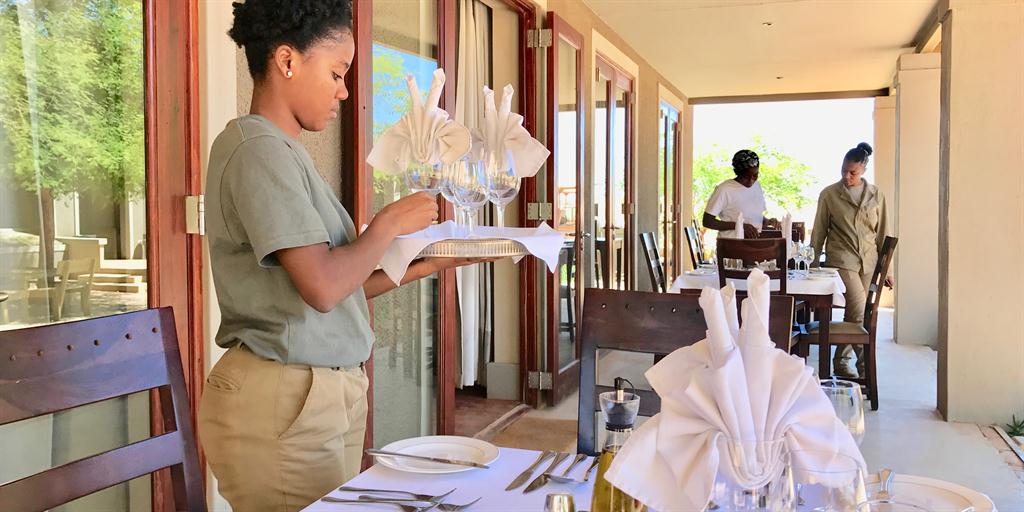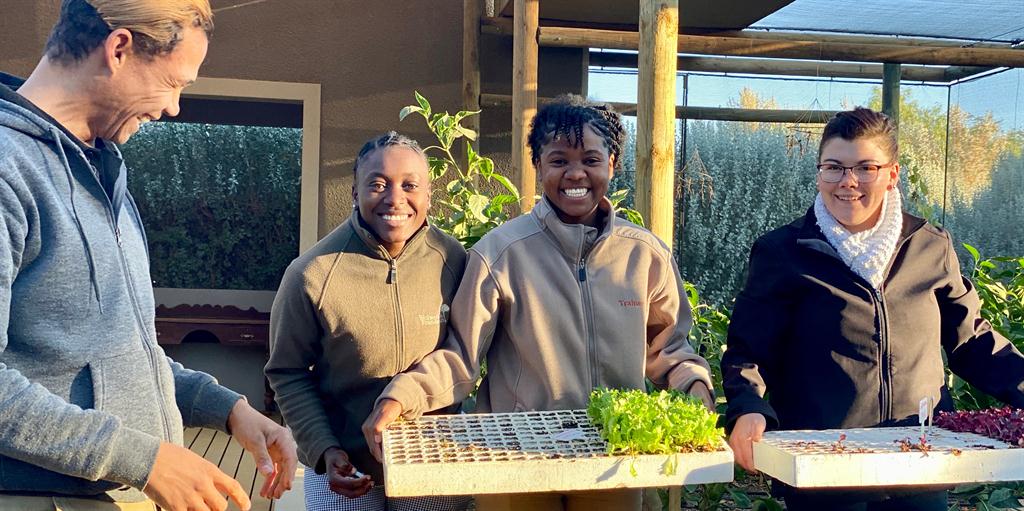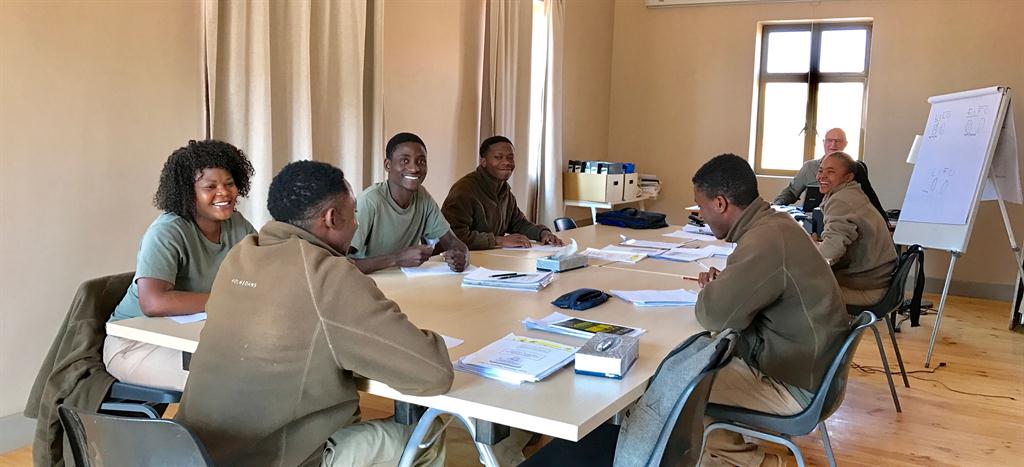Wolwedans Desert Academy and Social Security partnership
Wolwedans Desert Academy (WDA) started in 2007, which means it has been active in the vocational training industry for 14 years. The training initiative is managed and governed by the Wolwedans Foundation.
Monique Adams
The academy offers a variety of courses that focus mainly on the tourism and hospitality industries, while more recently the curricula development targets the complementary field of agriculture.
The course details are as follows:
Tourism and hospitality (NQA accredited and NTA registered)
Level 2 (10 months): Accommodation services, food and beverage services
Level 3 (18 months): Food and beverage operations
Level 3 (18 months): Commercial cookery
Agriculture (pilot and inaugural intake in 2021-22)
Level 2 (11 months): Horticulture and crop husbandry
Level 3 (18 months): Crop and horticulture production
With agriculture being a recent addition to the curriculum, the academy will be piloting its first intake this year and is very excited about that. This creates opportunities for growers and distributors in the local economy, making a supply chain management easier for tourism businesses by not having to order from larger, distant centres. It improves the quality of the guests’ experience by offering seasonal, fresh and healthy ingredients for meals.
“All of this ties in with our vision and the 5Cs sustainable framework that guides us at Wolwedans. To nurture Namibia’s youth so that they are ‘work-ready’ when they graduate and in fields that can support sustainable development to the country is in everyone’s best interest,” Philip Rehyer from the Wolwedans Academy said.
So far, over 300 youth have graduated from WDA to date, which includes those who graduated through their Windhoek training base at the Namibia Institute of Culinary Education (NICE).
Recently, the Social Security Commission collaborated with WDA to award bursaries to tourism and hospitality students, which cover tuition fees, room and board at their desert-based campus in the NamibRand Nature Reserve, transport and uniforms. The trainees will only need a budget for any incidentals or pocket money to buy snacks at the tuck shop.
The bursaries are available for the tourism and hospitality programme. Sixteen applicants will be selected from among the applications received and offered bursaries for the duration of the programme (two and a half years for Levels 2-3). The balance of placements – four seats – are partly funded by the Wolwedans Foundation and other private and public donors.
Their pilot programme in agriculture has also received funding for 12 bursaries, which will be offered to successful applicants as a result of the generous contributions of Germany-based non-governmental organisation, ConTine.
The admission requirements are as follows:
Minimum: Pass in Grade 10 (preferably Grade 12)
English proficiency and communication skills (speak, read, write)
Basic numerical skills (highly necessary)
Applicants must be 18 to 24 years of age
A positive attitude and friendly personality (a pre-requisite in the tourism and hospitality industries)
Who should apply:
Anyone who meets the above admission requirements
Unemployed Namibian youth with “fire in their belly” and a burning desire to advance themselves in life
Youth from socio-economically disadvantaged backgrounds
Namibian youth from the Hardap and //Karas regions are strongly encouraged to apply due to their close proximity to the campus
People with disabilities and who are from marginalised communities are encouraged to apply and will be given preference provided they meet all other admission requirements.
Candidates must go through an extensive recruitment screening process as the selection is largely determined by which applicants have a suitable personality and passion for the tourism and hospitality trade.
The academy offers a variety of courses that focus mainly on the tourism and hospitality industries, while more recently the curricula development targets the complementary field of agriculture.
The course details are as follows:
Tourism and hospitality (NQA accredited and NTA registered)
Level 2 (10 months): Accommodation services, food and beverage services
Level 3 (18 months): Food and beverage operations
Level 3 (18 months): Commercial cookery
Agriculture (pilot and inaugural intake in 2021-22)
Level 2 (11 months): Horticulture and crop husbandry
Level 3 (18 months): Crop and horticulture production
With agriculture being a recent addition to the curriculum, the academy will be piloting its first intake this year and is very excited about that. This creates opportunities for growers and distributors in the local economy, making a supply chain management easier for tourism businesses by not having to order from larger, distant centres. It improves the quality of the guests’ experience by offering seasonal, fresh and healthy ingredients for meals.
“All of this ties in with our vision and the 5Cs sustainable framework that guides us at Wolwedans. To nurture Namibia’s youth so that they are ‘work-ready’ when they graduate and in fields that can support sustainable development to the country is in everyone’s best interest,” Philip Rehyer from the Wolwedans Academy said.
So far, over 300 youth have graduated from WDA to date, which includes those who graduated through their Windhoek training base at the Namibia Institute of Culinary Education (NICE).
Recently, the Social Security Commission collaborated with WDA to award bursaries to tourism and hospitality students, which cover tuition fees, room and board at their desert-based campus in the NamibRand Nature Reserve, transport and uniforms. The trainees will only need a budget for any incidentals or pocket money to buy snacks at the tuck shop.
The bursaries are available for the tourism and hospitality programme. Sixteen applicants will be selected from among the applications received and offered bursaries for the duration of the programme (two and a half years for Levels 2-3). The balance of placements – four seats – are partly funded by the Wolwedans Foundation and other private and public donors.
Their pilot programme in agriculture has also received funding for 12 bursaries, which will be offered to successful applicants as a result of the generous contributions of Germany-based non-governmental organisation, ConTine.
The admission requirements are as follows:
Minimum: Pass in Grade 10 (preferably Grade 12)
English proficiency and communication skills (speak, read, write)
Basic numerical skills (highly necessary)
Applicants must be 18 to 24 years of age
A positive attitude and friendly personality (a pre-requisite in the tourism and hospitality industries)
Who should apply:
Anyone who meets the above admission requirements
Unemployed Namibian youth with “fire in their belly” and a burning desire to advance themselves in life
Youth from socio-economically disadvantaged backgrounds
Namibian youth from the Hardap and //Karas regions are strongly encouraged to apply due to their close proximity to the campus
People with disabilities and who are from marginalised communities are encouraged to apply and will be given preference provided they meet all other admission requirements.
Candidates must go through an extensive recruitment screening process as the selection is largely determined by which applicants have a suitable personality and passion for the tourism and hospitality trade.






Comments
Namibian Sun
No comments have been left on this article